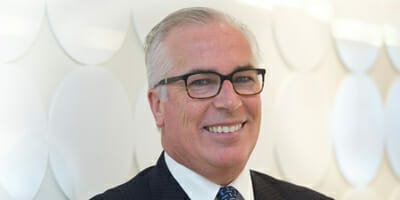The $2 trillion Australian superannuation industry continues to evolve, with the move to collective defined contribution the latest product innovation for pension funds. While the industry is largely defined contribution, it hasn’t been good at providing retirement income products. Now, a number of Australian funds that have had both defined benefit and defined contribution plan members, including UniSuper and Telstra Super, are looking to their Dutch and British contemporaries and introducing collective defined contribution. David Rowley reports.
Telstra Super is to explore the potential to create a collective defined contribution scheme as a way of avoiding sequencing risk for its members.
Chris Davies, chief executive of Telstra Super, says the A$17.5 billion fund has the scale to tailor its own pooled investment vehicle that would smooth investment outcomes.
He believes the fund may not have to rely on an external product provider to create the Comprehensive Income Product for Retirement as recommended in the Financial System Inquiry.
“We have got a dedicated product manager and our own in-house administration, so we can design systems,” said Davies. “Funds with scale can do that, or like other funds we may leverage off a third-party arrangement, whether it is Mercer Lifetime Plus or another.”
The only other Australian superannuation fund that has announced its intention to create a collective DC scheme is UniSuper – a project that its chair Chris Cuffe publicly mooted six years ago and for which a decision is expected this year.
Davies said that similar to UniSuper, Telstra Super had members who were used to the idea of pooled investment risk through Telstra’s defined benefit fund – which was closed to new members 15 years ago, but still has 5,400 active members.
“If you got the core competency around defined benefit and you have a core of members who have been through defined benefit then you have the culture, you have the ingredients to do something like a collective defined contribution arrangement.”
Davies is watching what other funds achieve in the space and the moves being made by the UK government to set up a legal and tax framework conducive to allowing collective defined contribution before proceeding.
He is also hoping that the Coalition Government’s long promised liberalisation of tax and legal restrictions on post-retirement product development will ease the way for CDC.
Davies says Telstra Super is committed to offering a sophisticated level of advice, communication and products for its members. To this effect, its submission to the Financial System Inquiry argued against the proposal for a narrow band of approved funds for accumulation on the grounds, that this would lead to a no-frills, low fee approach unlikely to offer the range of engagement and tailored outcomes that Telstra Super is trying to achieve for its members.



